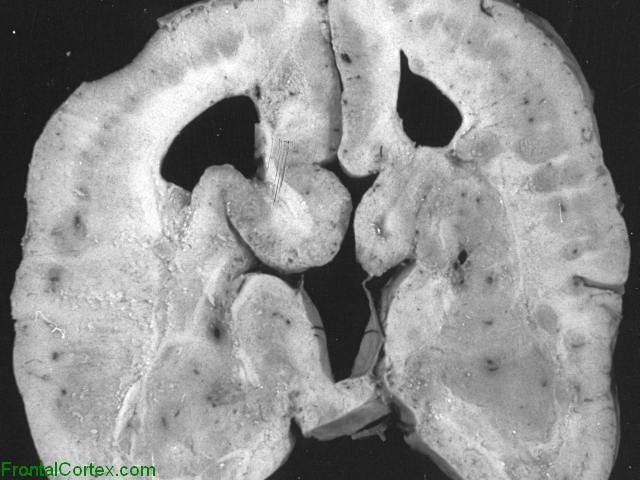
Courtesy of Dr. Mark Cohen
Which of the following gene mutations is most closely associated with this neuronal migration disorder?
Malformations 01Topic: AnatomyCreated on Sunday, February 8 2009 by gliageek Last modified on Sunday, February 8 2009.  Courtesy of Dr. Mark Cohen Which of the following gene mutations is most closely associated with this neuronal migration disorder? A) Doublecortin B) Tuberin C) POMT1 D) LIS1 E) Filamin-1
This question was last modified on February 08, 2009.
ANSWERS AND EXPLANATIONSA) Doublecortin
| |||||||||||||||||||||||||||||||||||||||||||||||||||||||||||||||||||||||||||
 |  |  | 
|  |  |
| Please log in if you want to rate questions. | |||||
 |  |  | 
|  |  |
| Please log in if you want to rate questions. | |||||
 |  |  | 
|  |  |
| Please log in if you want to rate questions. | |||||
 |  |  | 
|  |  |
| Please log in if you want to rate questions. | |||||
 |  |  | 
|  |  |
| Please log in if you want to rate questions. | |||||
| 1. Graham, D.I., and Lantos, P.L. (2002). Greenfield's Neuropathology, 7th ed. Arnold Press, New York. (ISBN:0340742313) | Advertising: |
 |  |  | 
|  |  |
| Please log in if you want to rate questions. | |||||
FrontalCortex.com -- Neurology Review Questions -- Neurology Boards -- Board Review -- Residency Inservice Training Exam -- RITE Exam Review